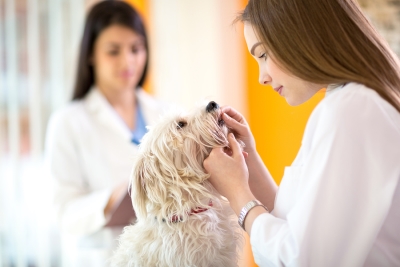A Closer Look at Non-Anesthetic Dental Care
Age and other factors can make pets poor candidates for anesthesia, so if your senior pet could benefit from a dog or cat dental in Campbell, then you have a good reason to consider non-anesthetic dental care when you bring him to his animal hospital. Continue reading to gain a better understanding of this type of veterinary procedure.
Non-anesthetic dental care is low-risk.
Although anesthesia is generally quite safe, it does present some risks when used in any type of treatment. Because non-anesthetic dental care uses no anesthesia, you can feel comfortable knowing that your pet will not be affected by any risks associated with anesthesia. For older pets, these risks can increase, meaning that non-anesthetic dental care can be particularly beneficial for senior cats and dogs.
Non-anesthetic dental care has no recovery time.
If your pet has undergone a dental visit in the past or any other procedure that involved anesthesia, then you realize how this can affect animals. For a time after the procedure, your pet may experience grogginess, nausea, and lethargy. Both you and your pet can benefit from non-anesthetic dental care because your dog or cat will have clean teeth and be back to his usual self immediately following his treatment. This means that your pet can skip the recovery time after his cat or dog dental visit along with the side effects of anesthesia, which typically last for a few hours.
Non-anesthetic dental care costs less than other options.
It’s not unusual for pet owners to delay bringing their pets in for dental care because the cost of these procedures can be daunting. However, a significant part of the fee is due to the anesthesia. When you choose to bring your pet to the veterinary hospital for a non-anesthetic dental cleaning, you may be glad to know that the costs for this treatment are quite a bit lower than those that use anesthesia. If you want to keep your dog or cat’s teeth healthy long-term but have concerns about the cost, then non-anesthetic dental care may provide you with a solution.

